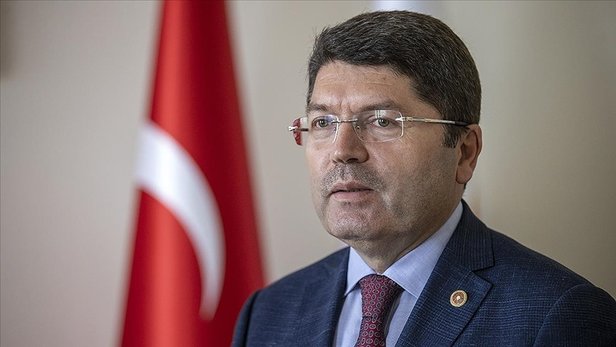Justice Minister Yılmaz Tunç on Wednesday said the Turkish government has sought the extradition of 1,269 people living in exile in 112 countries over alleged links to the Gülen movement, the Stockholm Center for Freedom reported.
Speaking to the pro-government A Haber private news channel, Tunç said the ministry has conveyed 1,387 extradition requests for 1,269 individuals.
According to the justice minister, 15,050 people are still behind bars over alleged Gülen links.
President Recep Tayyip Erdoğan has been targeting followers of the Gülen movement, inspired by Turkish Muslim cleric Fethullah Gülen, since the corruption investigations of December 17-25, 2013, which implicated then-prime minister Erdoğan, his family members and his inner circle.
Dismissing the investigations as a Gülenist coup and conspiracy against his government, Erdoğan designated the movement as a terrorist organization and began to target its members. He intensified the crackdown on the movement following the abortive putsch in 2016 that he accused Gülen of masterminding. Gülen and the movement strongly deny involvement in the coup attempt or any terrorist activity.
Since the 2016 coup attempt, the Turkish government has employed extralegal methods to secure the return of its critics after its official extradition requests are denied.
Turkey’s efforts at transnational repression against critics abroad do not seem to be winding down. Most recently, Turkish national Emsal Koç was illegally brought to Turkey from Tajikistan. Koç went missing in Dushanbe, Tajikistan, on June 2, and was found to be in police custody in the eastern Turkish province of Erzurum when the police contacted his family living in the province.
In June the Parliamentary Assembly of the Council of Europe (PACE) in its first resolution condemning all forms of transnational repression as a growing threat to the rule of law and human rights revealed the tactics of countries including Turkey to suppress their critics abroad.
In a joint letter UN rapporteurs accused the Turkish government of engaging in the systematic practice of state-sponsored extraterritorial abductions and forcible returns to Turkey, with at least 100 Turkish nationals renditioned from multiple states to Turkey.
Turkish intelligence agency (MIT) confirmed in its annual report that it had conducted operations for the forcible return of more than 100 people with alleged links to the Gülen movement.
“… [M]ore than 100 members of the [Gülen movement] from different countries were brought to Turkey as a result of the [agency’s] increased operational capacity abroad,” MİT’s 2022 report said.
An SCF report, released in October, 2021 and titled “Turkey’s Transnational Repression: Abduction, Rendition and Forcible Return of Erdoğan Critics,” focused on how the Turkish government under President Erdoğan has used extrajudicial and illegal methods for the forcible transfer to Turkey of its citizens abroad.
In several of these cases the UN Working Group on Arbitrary Detention (WGAD) concluded that the arrest, detention and forced transfer to Turkey of Turkish nationals were arbitrary and in violation of international human rights norms and standards.
